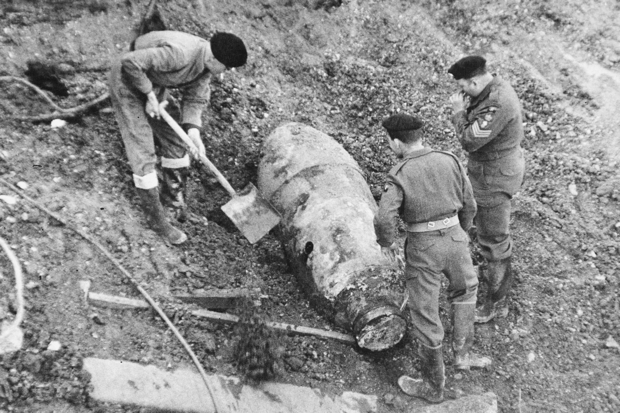It’s funny how people hardly know what they are saying. I read recently of diplomats going to Riyadh ‘to diffuse tensions over anti-Islamic stickers’. Did the writer mean defuse? Probably. He was trying to say ‘reduce’ tensions and just reached for the nearest dead metaphor from the shelf.
Still, it doesn’t do to be too snooty about origins of words, as I have often told my husband, who responds by becoming narrower, shriller, louder and much snootier. What happens if you bother to look up diffuse in the 20-volume Oxford English Dictionary? You find the first entry quotes from old John Florio’s World of Words from 1598, which spells it defuse. So do Philemon Holland (in his translation of Pliny) and the quarto edition of King Lear, with the meaning ‘confuse’. So much for the spelling.
I take it that most people think of diffuse as a metaphor from physics (or chemistry, as it seems to them) referring to the dispersal of gases. E.A. Parkes, one of those great Victorian anti-cholera activists, declared: ‘Every gas diffuses at a certain rate.’ Who would deny it?
Yet diffuse meant first of all ‘pour out’, deriving from Latin diffundere. An attempt to establish another English word from the same source failed after 150 years when diffund went out of use in the late 16th century. We are only aware of the survivors among such words. Diffund was happily used by Osbern Bokenham, born in 1393 at Old Buckenham, Norfolk. An astonishing discovery of the manuscript of a translation into English by him of the medieval bestseller, the Legenda Aurea, was made in 2004. It had lain unnoticed in Sir Walter Scott’s library. But as the world’s interest in old books doesn’t go much further than the First Folio of Shakespeare, the astonishing discovery went little remarked.
The chemico-physical meaning of diffuse developed only in the 19th century, after the adoption of the molecular theory. The metaphorical use of defuse arrived in the 1950s, following the real acts of brave bomb-disposal men in the second world war. But since abstract things such as situations have no fuses, diffuse, a more diffuse sort of word than defuse, carelessly slips into its semantic slot without the speaker noticing a thing.





Comments